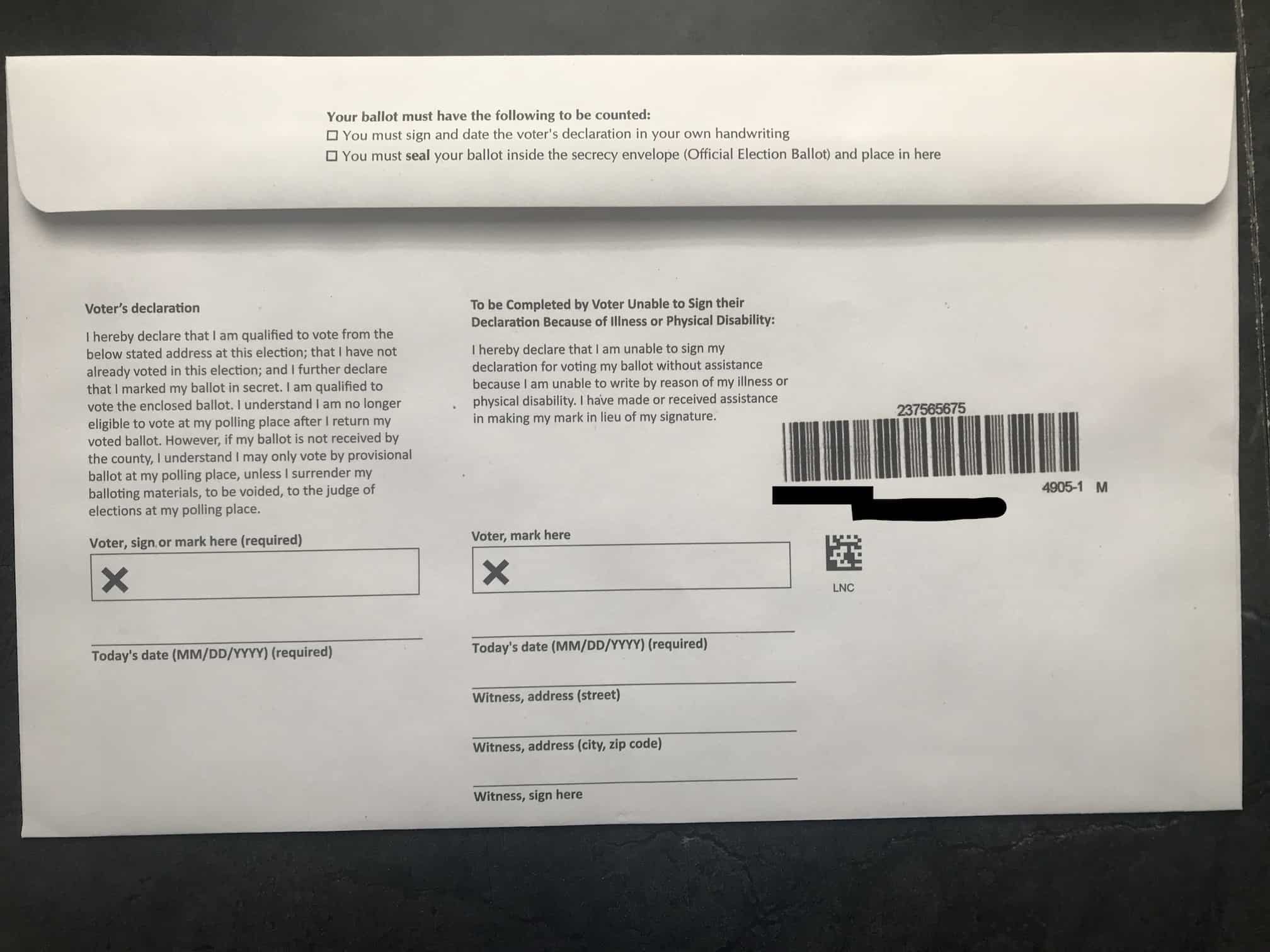
Federal Court Rules PA’s Date Requirement For Mail-In Ballots Violates First and 14th Amendments
PA counties cannot reject ballots from counting undated and wrongly dated mail-in ballots

PA counties cannot reject ballots from counting undated and wrongly dated mail-in ballots
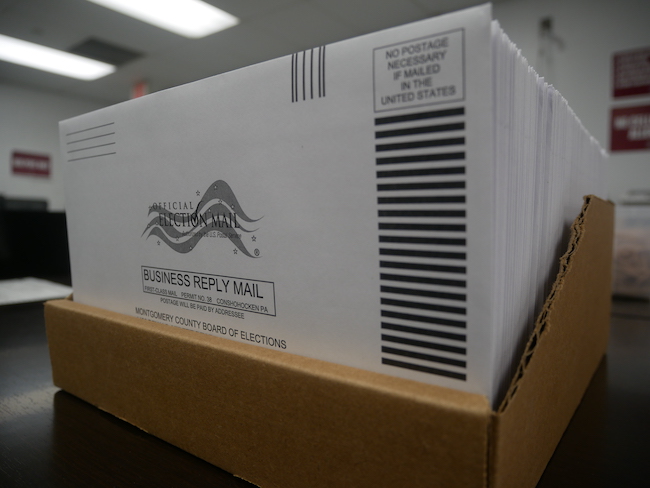
89% of mail ballots returned and just 1% rejected, down from 2.4% in April
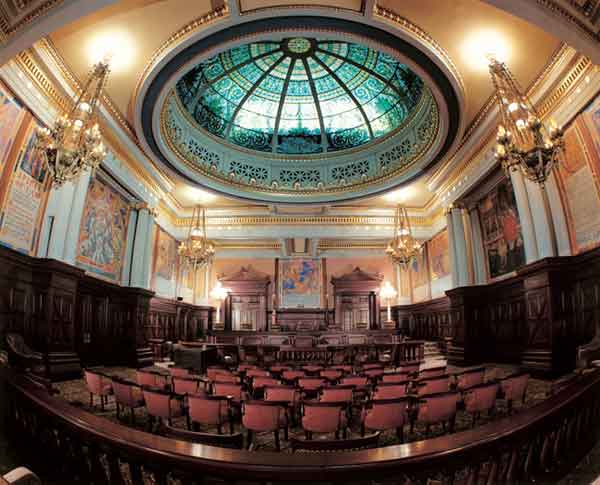
A decision could resolve constitutional challenges to rules in 2019 mail-voting law
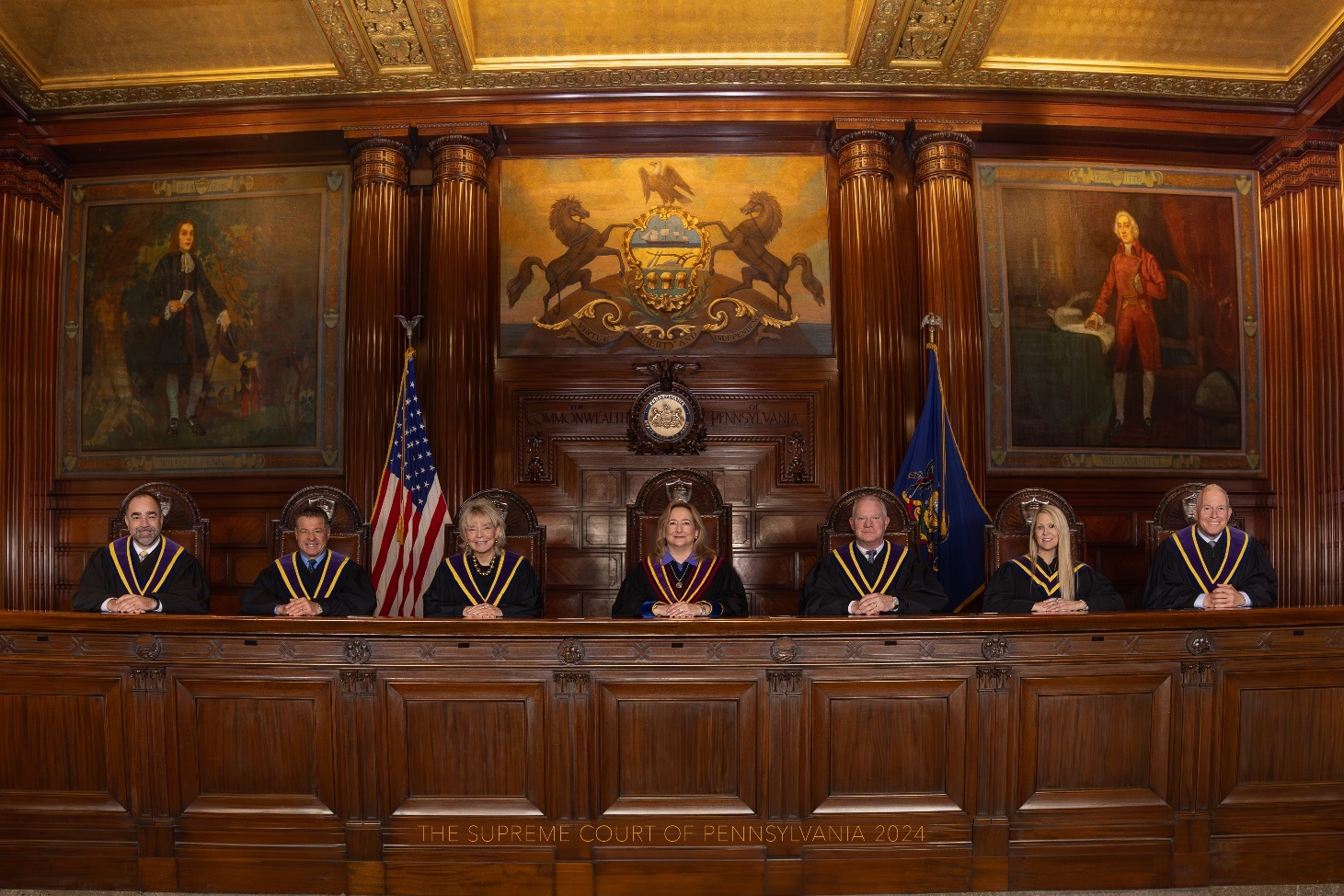
4-3 decision is a victory for McCormick and a defeat for Casey campaign
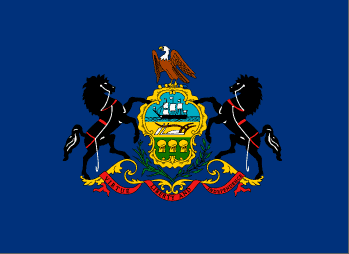
More than 4,000 voters had their eligibility to vote questioned over residency. They got a chance to fight back.

Approximately one-quarter of the 9.16 million registered PA voters
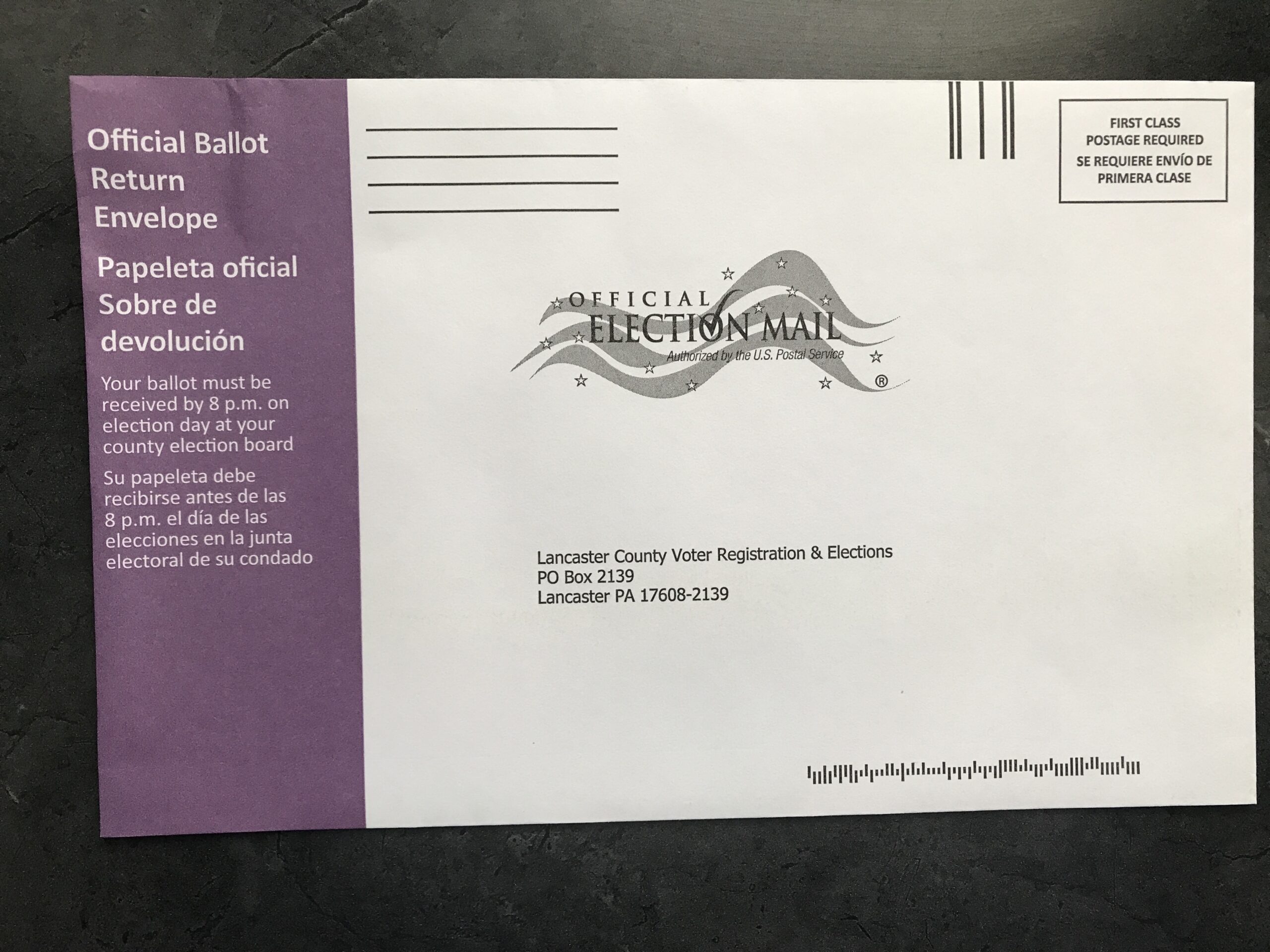
Time is running out. Here’s how to make sure your mail ballot counts

More than 1.6 million mail ballots have been requested with more than 25% returned
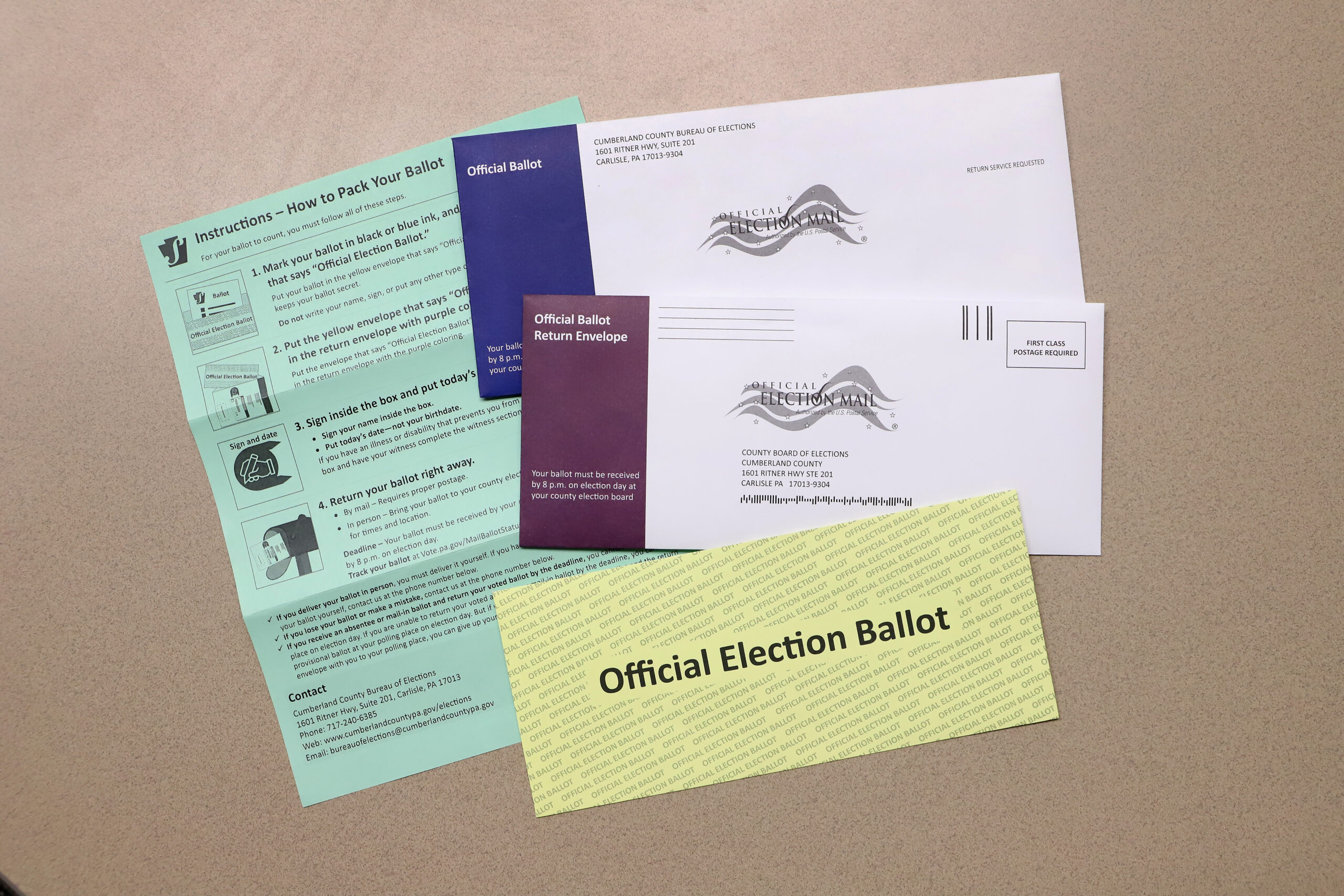
Voters can complete their voting with one stop to their county election office

Voters can complete their voting with one stop to their county election office
A federal court has found that Pennsylvania’s date requirement for mail-in ballots violates both the First and 14th Amendments of the United States Constitution.
The decision by District Judge Susan Baxter, an appointee of President Donald Trump, means that the Commonwealth’s 67 counties cannot reject undated and wrongly dated mail-in ballots.
🚨BREAKING: Federal court rules that the Pennsylvania date requirement for mail-in ballot violates the First and 14th Amendments. Counties cannot reject ballots from counting undated and wrongly dated mail-in ballots.
A HUGE victory for my law firm, our clients DSCC and DCCC and the voters of PA!
— Marc Elias (@marcelias.bsky.social) March 31, 2025 at 2:44 PM
In November 2022, two citizens – Bette Eakin and Ines Massella – along with Fetterman for PA, the Democratic Senate Campaign Committee, and the Democratic Congressional Campaign Committee, filed a suit in the U.S. District Court of Western Pennsylvania.
The suit against Pennsylvania’s 67 county boards of elections challenged the “Date Instruction,” for mail-in ballots, which prevents counties from counting undated and wrongly dated mail-in ballots.
The plaintiffs alleged that this policy violates the Materiality Provision of the Civil Rights Act by denying an individual the right to vote for a reason that is not material to determining that individual’s eligibility. The plaintiffs argued that the date requirement is immaterial because “Pennsylvania law determines voter eligibility based on the date of the election—rather than the date of marking the ballot—[so] the Date Instruction provides no information about whether a voter is qualified.”
The constitutional amendments came into play when the plaintiffs alleged that by placing an undue burden on the right to vote, the policy violated the First and 14th Amendments.
In March 2024, a Court of Appeals held that the date requirement did not violate the Materiality Provision. But the appellate court did not resolve the constitutional claims.
The 21-page opinion did resolve those questions, saying that “the right to vote necessarily includes the right to have that vote counted.” The first part of the test is met because “Disenfranchising voters for defects in their ballots imposes significant burdens on voting rights even if the effort needed for a voter to complete the ballot correctly appears slight when considered in isolation.”
The second inquiry deals with the date on the outer envelope of the ballot and is “primarily concerned with the mechanics of the electoral process, or whether it implicates core political speech.”
Having already recognized that the date requirement burdens the First Amendment right to vote, the court concluded that the burden imposes only a “minimal” burden as the date requirement is nondiscriminatory.
However, Pennsylvania has not defended any interests that are served by imposing even that minimal burden on the right to vote. Nor, have most of the 67 Defendant county boards of elections “identified an interest in requiring a voter to date the outer envelope of their ballot.”
The only Defendants that have are Berks County and the Republican National Committee, which argue that the “dating requirement furthers the Commonwealth’s interest in detecting voter fraud.” The decision does state that there is no evidence demonstrating how the requirement “furthers that purported interest.”
Utilizing the Anderson-Burdick balancing test – which requires courts to weigh burdens that a state imposes on electoral participation against the state’s asserted benefits – although the way in which courts are supposed to conduct this balancing is the subject of much dispute and uncertainty.
The court decided “Since there is no evidence that the date requirement serves any state interest, even a slight burden on voting rights cannot withstand constitutional scrutiny. Put another way, even the slightest burden that results from the enforcement of the date provision is too much when there is no counterbalance.
“In this case, the weight of the burden on the citizens right to vote is not counterbalanced by evidence of any governmental interest. Accordingly, the enforcement of the date provisions does not pass constitutional muster.”
The Pennsylvania Department of State issued this statement following the release of the ruling.
“Today’s federal court decision is a victory for Pennsylvania’s voters. A voter’s fundamental right to vote should not be burdened by a meaningless technicality. County elections officials already confirm every ballot was sent and received within the legal voting window.
The Shapiro Administration has fought to protect every eligible voter and ensure that our elections remain free, fair, safe, and secure. The court got it right when it highlighted what Secretary Schmidt has said: “There is no state interest in rejecting timely mail ballots from eligible voters who merely neglected to correctly date their return-envelope declaration.”
We are reviewing the decision and will work to ensure county elections officials understand and follow current elections laws.”
Updated to include quote from DOS.
A federal court has found that Pennsylvania’s date requirement for mail-in ballots violates both the First and 14th Amendments of the United States Constitution.
The decision by District Judge Susan Baxter, an appointee of President Donald Trump, means that the Commonwealth’s 67 counties cannot reject undated and wrongly dated mail-in ballots.
🚨BREAKING: Federal court rules that the Pennsylvania date requirement for mail-in ballot violates the First and 14th Amendments. Counties cannot reject ballots from counting undated and wrongly dated mail-in ballots.
A HUGE victory for my law firm, our clients DSCC and DCCC and the voters of PA!
— Marc Elias (@marcelias.bsky.social) March 31, 2025 at 2:44 PM
In November 2022, two citizens – Bette Eakin and Ines Massella – along with Fetterman for PA, the Democratic Senate Campaign Committee, and the Democratic Congressional Campaign Committee, filed a suit in the U.S. District Court of Western Pennsylvania.
The suit against Pennsylvania’s 67 county boards of elections challenged the “Date Instruction,” for mail-in ballots, which prevents counties from counting undated and wrongly dated mail-in ballots.
The plaintiffs alleged that this policy violates the Materiality Provision of the Civil Rights Act by denying an individual the right to vote for a reason that is not material to determining that individual’s eligibility. The plaintiffs argued that the date requirement is immaterial because “Pennsylvania law determines voter eligibility based on the date of the election—rather than the date of marking the ballot—[so] the Date Instruction provides no information about whether a voter is qualified.”
The constitutional amendments came into play when the plaintiffs alleged that by placing an undue burden on the right to vote, the policy violated the First and 14th Amendments.
In March 2024, a Court of Appeals held that the date requirement did not violate the Materiality Provision. But the appellate court did not resolve the constitutional claims.
The 21-page opinion did resolve those questions, saying that “the right to vote necessarily includes the right to have that vote counted.” The first part of the test is met because “Disenfranchising voters for defects in their ballots imposes significant burdens on voting rights even if the effort needed for a voter to complete the ballot correctly appears slight when considered in isolation.”
The second inquiry deals with the date on the outer envelope of the ballot and is “primarily concerned with the mechanics of the electoral process, or whether it implicates core political speech.”
Having already recognized that the date requirement burdens the First Amendment right to vote, the court concluded that the burden imposes only a “minimal” burden as the date requirement is nondiscriminatory.
However, Pennsylvania has not defended any interests that are served by imposing even that minimal burden on the right to vote. Nor, have most of the 67 Defendant county boards of elections “identified an interest in requiring a voter to date the outer envelope of their ballot.”
The only Defendants that have are Berks County and the Republican National Committee, which argue that the “dating requirement furthers the Commonwealth’s interest in detecting voter fraud.” The decision does state that there is no evidence demonstrating how the requirement “furthers that purported interest.”
Utilizing the Anderson-Burdick balancing test – which requires courts to weigh burdens that a state imposes on electoral participation against the state’s asserted benefits – although the way in which courts are supposed to conduct this balancing is the subject of much dispute and uncertainty.
The court decided “Since there is no evidence that the date requirement serves any state interest, even a slight burden on voting rights cannot withstand constitutional scrutiny. Put another way, even the slightest burden that results from the enforcement of the date provision is too much when there is no counterbalance.
“In this case, the weight of the burden on the citizens right to vote is not counterbalanced by evidence of any governmental interest. Accordingly, the enforcement of the date provisions does not pass constitutional muster.”
The Pennsylvania Department of State issued this statement following the release of the ruling.
“Today’s federal court decision is a victory for Pennsylvania’s voters. A voter’s fundamental right to vote should not be burdened by a meaningless technicality. County elections officials already confirm every ballot was sent and received within the legal voting window.
The Shapiro Administration has fought to protect every eligible voter and ensure that our elections remain free, fair, safe, and secure. The court got it right when it highlighted what Secretary Schmidt has said: “There is no state interest in rejecting timely mail ballots from eligible voters who merely neglected to correctly date their return-envelope declaration.”
We are reviewing the decision and will work to ensure county elections officials understand and follow current elections laws.”
Updated to include quote from DOS.
A federal court has found that Pennsylvania’s date requirement for mail-in ballots violates both the First and 14th Amendments of the United States Constitution.
The decision by District Judge Susan Baxter, an appointee of President Donald Trump, means that the Commonwealth’s 67 counties cannot reject undated and wrongly dated mail-in ballots.
🚨BREAKING: Federal court rules that the Pennsylvania date requirement for mail-in ballot violates the First and 14th Amendments. Counties cannot reject ballots from counting undated and wrongly dated mail-in ballots.
A HUGE victory for my law firm, our clients DSCC and DCCC and the voters of PA!
— Marc Elias (@marcelias.bsky.social) March 31, 2025 at 2:44 PM
In November 2022, two citizens – Bette Eakin and Ines Massella – along with Fetterman for PA, the Democratic Senate Campaign Committee, and the Democratic Congressional Campaign Committee, filed a suit in the U.S. District Court of Western Pennsylvania.
The suit against Pennsylvania’s 67 county boards of elections challenged the “Date Instruction,” for mail-in ballots, which prevents counties from counting undated and wrongly dated mail-in ballots.
The plaintiffs alleged that this policy violates the Materiality Provision of the Civil Rights Act by denying an individual the right to vote for a reason that is not material to determining that individual’s eligibility. The plaintiffs argued that the date requirement is immaterial because “Pennsylvania law determines voter eligibility based on the date of the election—rather than the date of marking the ballot—[so] the Date Instruction provides no information about whether a voter is qualified.”
The constitutional amendments came into play when the plaintiffs alleged that by placing an undue burden on the right to vote, the policy violated the First and 14th Amendments.
In March 2024, a Court of Appeals held that the date requirement did not violate the Materiality Provision. But the appellate court did not resolve the constitutional claims.
The 21-page opinion did resolve those questions, saying that “the right to vote necessarily includes the right to have that vote counted.” The first part of the test is met because “Disenfranchising voters for defects in their ballots imposes significant burdens on voting rights even if the effort needed for a voter to complete the ballot correctly appears slight when considered in isolation.”
The second inquiry deals with the date on the outer envelope of the ballot and is “primarily concerned with the mechanics of the electoral process, or whether it implicates core political speech.”
Having already recognized that the date requirement burdens the First Amendment right to vote, the court concluded that the burden imposes only a “minimal” burden as the date requirement is nondiscriminatory.
However, Pennsylvania has not defended any interests that are served by imposing even that minimal burden on the right to vote. Nor, have most of the 67 Defendant county boards of elections “identified an interest in requiring a voter to date the outer envelope of their ballot.”
The only Defendants that have are Berks County and the Republican National Committee, which argue that the “dating requirement furthers the Commonwealth’s interest in detecting voter fraud.” The decision does state that there is no evidence demonstrating how the requirement “furthers that purported interest.”
Utilizing the Anderson-Burdick balancing test – which requires courts to weigh burdens that a state imposes on electoral participation against the state’s asserted benefits – although the way in which courts are supposed to conduct this balancing is the subject of much dispute and uncertainty.
The court decided “Since there is no evidence that the date requirement serves any state interest, even a slight burden on voting rights cannot withstand constitutional scrutiny. Put another way, even the slightest burden that results from the enforcement of the date provision is too much when there is no counterbalance.
“In this case, the weight of the burden on the citizens right to vote is not counterbalanced by evidence of any governmental interest. Accordingly, the enforcement of the date provisions does not pass constitutional muster.”
The Pennsylvania Department of State issued this statement following the release of the ruling.
“Today’s federal court decision is a victory for Pennsylvania’s voters. A voter’s fundamental right to vote should not be burdened by a meaningless technicality. County elections officials already confirm every ballot was sent and received within the legal voting window.
The Shapiro Administration has fought to protect every eligible voter and ensure that our elections remain free, fair, safe, and secure. The court got it right when it highlighted what Secretary Schmidt has said: “There is no state interest in rejecting timely mail ballots from eligible voters who merely neglected to correctly date their return-envelope declaration.”
We are reviewing the decision and will work to ensure county elections officials understand and follow current elections laws.”
Updated to include quote from DOS.
A federal court has found that Pennsylvania’s date requirement for mail-in ballots violates both the First and 14th Amendments of the United States Constitution.
The decision by District Judge Susan Baxter, an appointee of President Donald Trump, means that the Commonwealth’s 67 counties cannot reject undated and wrongly dated mail-in ballots.
🚨BREAKING: Federal court rules that the Pennsylvania date requirement for mail-in ballot violates the First and 14th Amendments. Counties cannot reject ballots from counting undated and wrongly dated mail-in ballots.
A HUGE victory for my law firm, our clients DSCC and DCCC and the voters of PA!
— Marc Elias (@marcelias.bsky.social) March 31, 2025 at 2:44 PM
In November 2022, two citizens – Bette Eakin and Ines Massella – along with Fetterman for PA, the Democratic Senate Campaign Committee, and the Democratic Congressional Campaign Committee, filed a suit in the U.S. District Court of Western Pennsylvania.
The suit against Pennsylvania’s 67 county boards of elections challenged the “Date Instruction,” for mail-in ballots, which prevents counties from counting undated and wrongly dated mail-in ballots.
The plaintiffs alleged that this policy violates the Materiality Provision of the Civil Rights Act by denying an individual the right to vote for a reason that is not material to determining that individual’s eligibility. The plaintiffs argued that the date requirement is immaterial because “Pennsylvania law determines voter eligibility based on the date of the election—rather than the date of marking the ballot—[so] the Date Instruction provides no information about whether a voter is qualified.”
The constitutional amendments came into play when the plaintiffs alleged that by placing an undue burden on the right to vote, the policy violated the First and 14th Amendments.
In March 2024, a Court of Appeals held that the date requirement did not violate the Materiality Provision. But the appellate court did not resolve the constitutional claims.
The 21-page opinion did resolve those questions, saying that “the right to vote necessarily includes the right to have that vote counted.” The first part of the test is met because “Disenfranchising voters for defects in their ballots imposes significant burdens on voting rights even if the effort needed for a voter to complete the ballot correctly appears slight when considered in isolation.”
The second inquiry deals with the date on the outer envelope of the ballot and is “primarily concerned with the mechanics of the electoral process, or whether it implicates core political speech.”
Having already recognized that the date requirement burdens the First Amendment right to vote, the court concluded that the burden imposes only a “minimal” burden as the date requirement is nondiscriminatory.
However, Pennsylvania has not defended any interests that are served by imposing even that minimal burden on the right to vote. Nor, have most of the 67 Defendant county boards of elections “identified an interest in requiring a voter to date the outer envelope of their ballot.”
The only Defendants that have are Berks County and the Republican National Committee, which argue that the “dating requirement furthers the Commonwealth’s interest in detecting voter fraud.” The decision does state that there is no evidence demonstrating how the requirement “furthers that purported interest.”
Utilizing the Anderson-Burdick balancing test – which requires courts to weigh burdens that a state imposes on electoral participation against the state’s asserted benefits – although the way in which courts are supposed to conduct this balancing is the subject of much dispute and uncertainty.
The court decided “Since there is no evidence that the date requirement serves any state interest, even a slight burden on voting rights cannot withstand constitutional scrutiny. Put another way, even the slightest burden that results from the enforcement of the date provision is too much when there is no counterbalance.
“In this case, the weight of the burden on the citizens right to vote is not counterbalanced by evidence of any governmental interest. Accordingly, the enforcement of the date provisions does not pass constitutional muster.”
The Pennsylvania Department of State issued this statement following the release of the ruling.
“Today’s federal court decision is a victory for Pennsylvania’s voters. A voter’s fundamental right to vote should not be burdened by a meaningless technicality. County elections officials already confirm every ballot was sent and received within the legal voting window.
The Shapiro Administration has fought to protect every eligible voter and ensure that our elections remain free, fair, safe, and secure. The court got it right when it highlighted what Secretary Schmidt has said: “There is no state interest in rejecting timely mail ballots from eligible voters who merely neglected to correctly date their return-envelope declaration.”
We are reviewing the decision and will work to ensure county elections officials understand and follow current elections laws.”
Updated to include quote from DOS.
What Should Happen With the U.S. Department of Education?
Total Voters: 62